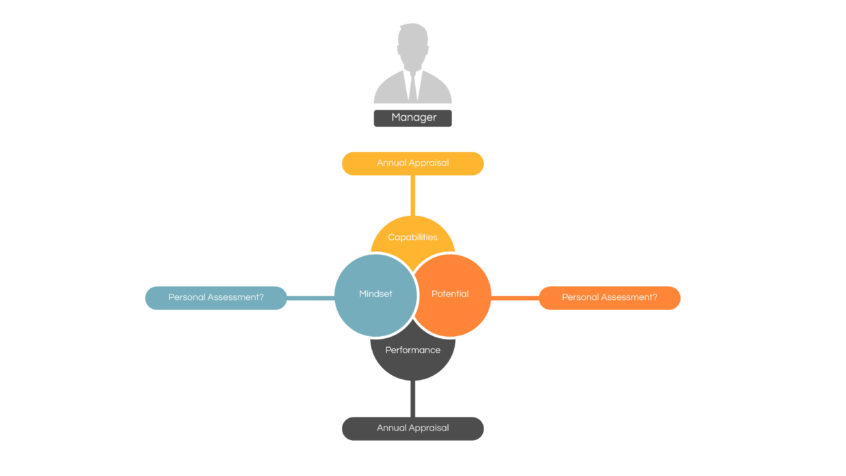 Here in part 2 we look at those hidden human traits often overlooked by HR & Procurement Professionals when building their ACE team:
Here in part 2 we look at those hidden human traits often overlooked by HR & Procurement Professionals when building their ACE team:
The hidden human traits
The capability of your procurement team is not just dependent upon skills training; it is much more than that. Mindsets are critical also because it is a person’s mindset that will drive their behavior, and ultimately even the most technically skilled person will fail unless they demonstrate the right behaviors. These human traits are, therefore, critical to a successful transformation.
Development programs need to help buyers create the right thinking habits, ones that help them demonstrate more powerful behaviors to engage in relationships more effectively, especially with internal stakeholders and suppliers.
Mindset
In a CPO Agenda article “More than just the goalkeeper” the writers point out a crucial question to answer for procurement professionals wishing to have influence in their organization:
“who am I in this organization and what do I do?”
In considering this question one of the conclusions drawn is that the principal roadblock for CPO’s and the procurement profession getting to where they profess to want to be, lies in the minds of the very professionals seeking the change.
The article also rightly points out that, such attributions of blame are often self-deceptions and that in reality the main barrier to progress definitely lies within the CPO’s span of control.
In our experience, everywhere we go we find procurement professionals who profess to want the strategic remit, but display a victim mindset (“they won’t let me”) so I don’t try anymore. The resulting weak behaviors demonstrated by the victims is observed by stakeholders and the reputation of the procurement function is damaged. This needs to change.
Self-awareness is vital
A reliable assessment of your team’s attributes and capabilities is the best way to bring self-awareness of your team into focus. Personal authenticity and legitimacy are powerful characteristics for influencing people. Put more directly, procurement professionals must have the skills they profess to have, so until procurement professionals achieve a level of business acumen to influence at the top table, they may be able to dictate through their position in the hierarchy (ie, decide what their team does), but they will always find it difficult to influence the wider organization and the business agenda.
Fundamentally for procurement, the type of personalities they attract into the profession and whether they really have the crucial ambition to be more strategic is a critical factor for the professions continued development. Our iProcure assessment tool provides all the flexibility needed to assess the current knowledge, and mindsets of job candidates before you hire them and for your team once you have. It provides the most reliable baseline data needed to develop meaningful personal development programs to build your teams procurement capability.
Behavior
Strategically aligned behavior is critical to procurement transformation. Capability development must therefore make a direct connection between business objectives and the behavior changes needed to achieve those objectives.
There are two types of behavior:
1. task performance or in-role behavior (increasing efficiency)
2. contextual performance or organizational behavioral norms (increasing organizational acceptance)
At Purchasing Practice we have developed a joined up approach to building capability in procurement that recognizes the impact of the environment on individual performance. This methodology recognizes that skills and motivation are attributes of the individual, but they can only make a difference when the organization provides the appropriate context in which they can be applied. Behavior change may therefore have to be preceded by a change in organizational mindset (beliefs).
Without the change in organizational behavior learning application will be diluted at best, and the behavior change you’re counting on for new business outcomes may not happen. Personal assertiveness, ambition and creating a supportive environment, need to be a key part of the play book for CPOs and their team if they are to play a greater strategic role.
Personal Risk (The Brave CPO)
As many have found out the hard way (myself included) there are also personal risks to consider. Experienced CPO’s will relate to the sensitivity required, likening it to ‘walking on eggshells’ when talking openly and frankly about strategic matters. It takes bravery to put your head up above the parapet in a chicken shoot.
Ultimately, however, although it is important to be sensitive to your environments culture and norms where there is uncertainty about the basic value of procurement, personal risk taking is central to being a good leader. If you are unwilling to commit yourself – when you know that there are personal consequences – it is difficult to ask others to do the same and ultimately failure is only delayed not avoided.
So the DNA of a successful procurement leader must seek to balance the traditional remit of control and cost minimization, with a willingness to take risks to deliver breakthrough results which add strategic value. This often comes at the cost of butting heads against some powerful stakeholders.
Good leaders will encourage their team to take risk of their own, and encourage those around them to seek answers and solutions; and they develop people who will lead (in their own right), not follow.
Nuff said ….
Review part 1 here
If you would like to learn more about our capability development systems you can contact us at: [email protected]
or visit us @ www.purchasingassessments.com

